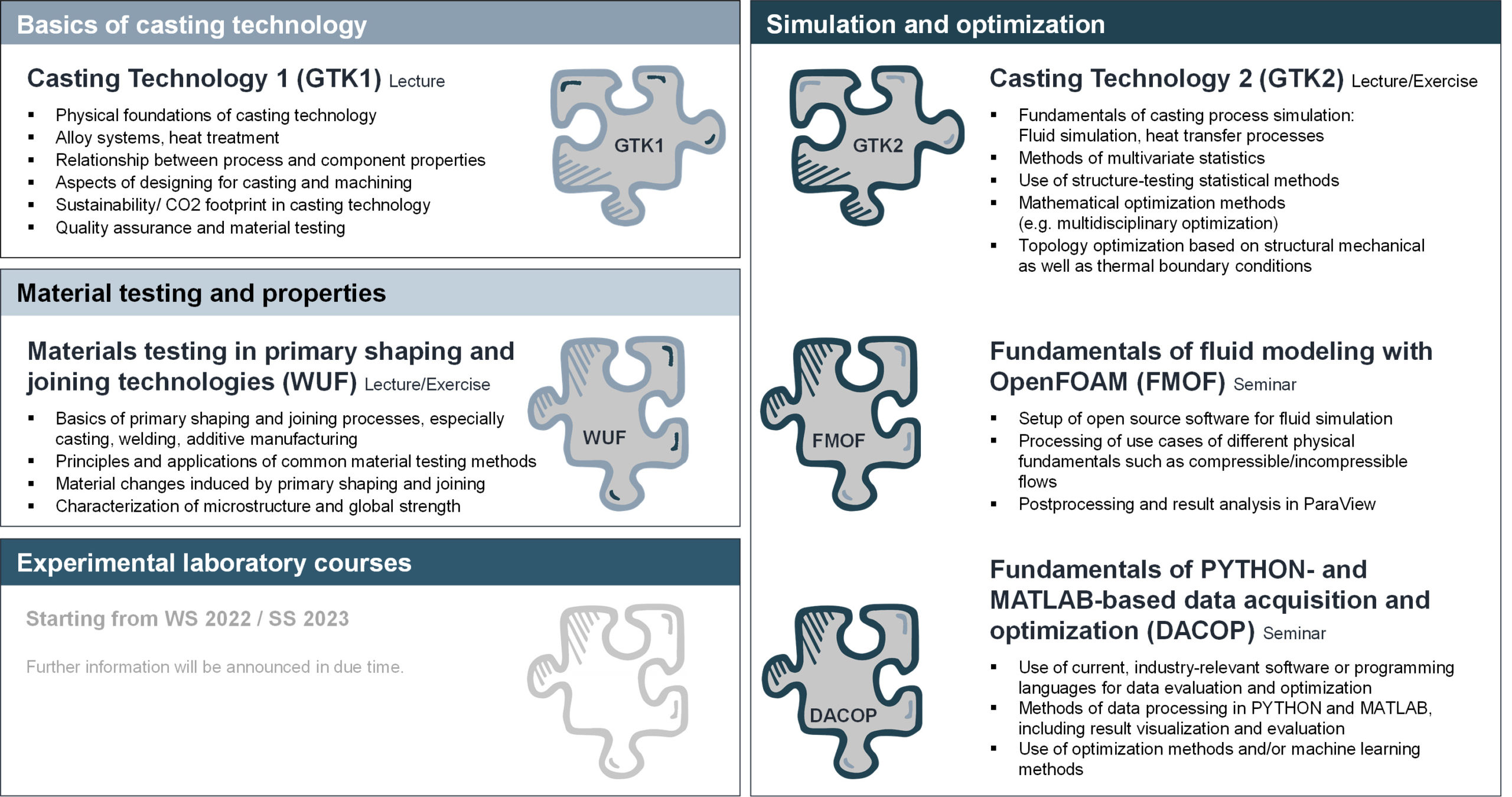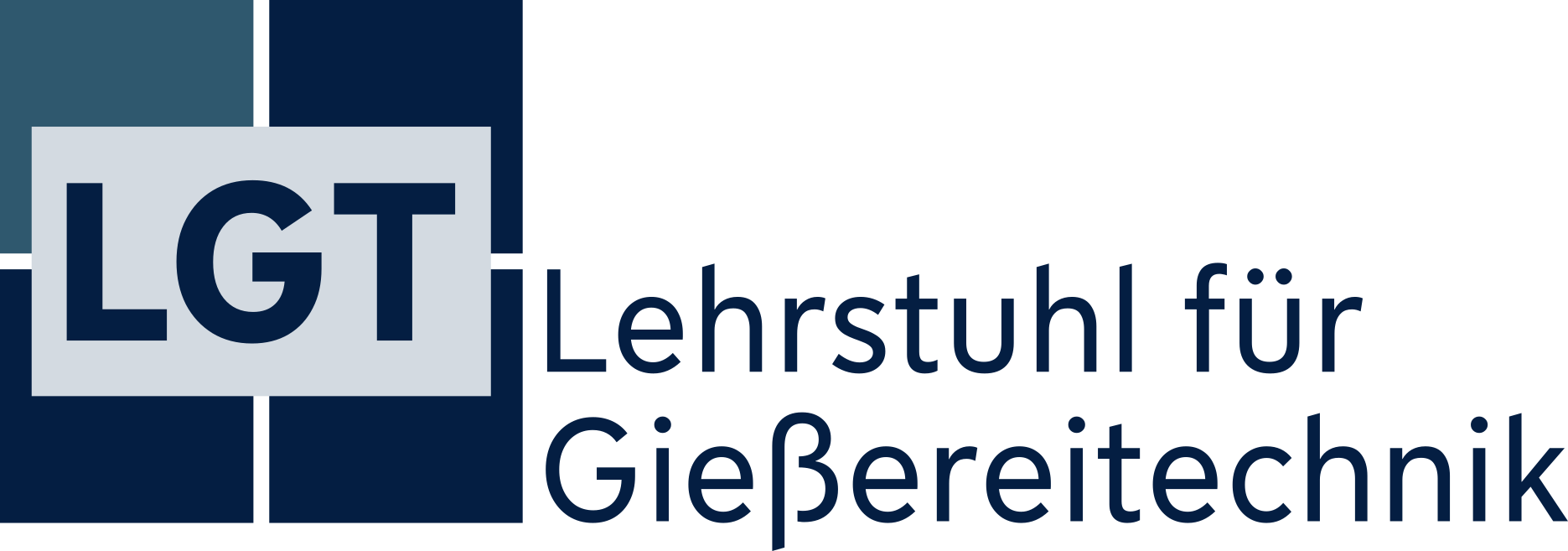Teaching
Within the framework of our teaching portfolio, we offer a wide range of different courses for the acquisition of knowledge and methods associated with the field of casting technology.
We take care to ensure that the knowledge and methods gained are transferable to other engineering disciplines as far as possible.
The lecture Casting Technology 1 (GTK1) is the basic lecture and thus serves as an introduction to the world of casting technology. Based on the lecture contents you will gain a broad knowledge in this context, starting with the basics of solidification and defect formation up to aspects of sustainability as well as material characterization.
If you have a deeper interest in material characterization, we recommend attending the lecture Material Characterization in Primary Shaping and Joining Technology (WUF), in which knowledge as well as specific methods are covered. Here you will have the opportunity to apply and deepen the knowledge you have acquired by means of practical case studies and the methods taught.
In the lecture Casting Technology 2 (GTK2) we deal with how (casting) processes can be modeled and optimized virtually – based on simulation-based numerical methods as well as on further optimization methods. We recommend to attend the lecture GTK2 after the lecture GTK1, however, a cross entry is also possible.
The offered seminars (FMOF, DACOP) provide practical knowledge in the use of very powerful open source software in the field of fluid simulation (OpenFOAM) as well as in the use of programming languages or software for data acquisition, evaluation and optimization. The seminars are independent from the lectures GTK1, GTK2 as well as WUF and do not consider casting specific problems in the context of this practical introduction. On the one hand, the seminars are interesting for you if you want to combine the contents offered in GTK2 with more extensive practical knowledge of your own. On the other hand, you can also obtain a practical cross-entry into the programs used or the associated solution methods within the framework of your studies.
Furthermore, the LGT offers supervision of theses and internships.

